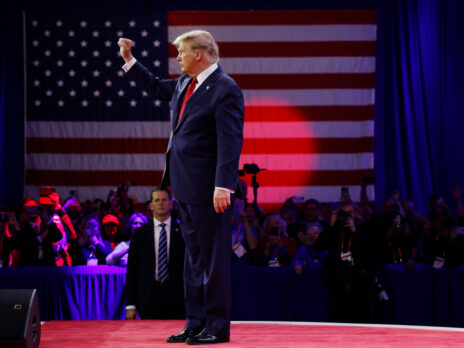
Watching jubilant Zimbabweans celebrate Robert Mugabe’s downfall this week, it was hard to avoid the thought that they should be careful what they wish for. For half a century Emmerson Mnangagwa, his probable successor, was Mugabe’s brutal henchman and, says an opposition leader, “associated with all the darkest periods of our history”.
There is little prospect of his accession heralding a new era of political freedom in his long-repressed land, or of him relaxing Zanu-PF’s iron grip on power, although he may seek a veneer of legitimacy by appointing a government of national unity.
The best that Zimbabwe can hope for is economic recovery, and that matters in a country from which more than a quarter of the population has fled and 90 per cent of the remainder are unemployed.
Mnangagwa is more pragmatic and economically literate than Mugabe, who is 93. He understands the need for foreign investment and for restoring the stability required to attract it. Using words that Mugabe would never have uttered, he told the New Statesman last year: “Capital goes where it feels comfortable and warm, and if it’s cold it runs to a country which gives it better weather.”
Mnangagwa, who is 75, first met Mugabe as a teenager. The older man came to teach in his home village and inspired him to join the incipient struggle against white minority rule in what was then Rhodesia.
In the early 1960s Mnangagwa was sent to Egypt and China for military and ideological training. He was subsequently arrested for blowing up a locomotive near the Victoria Falls. He escaped execution after two doctors testified that he was under 21, but Ian Smith’s government imprisoned him for ten years instead. He was electrocuted, hung upside down from meat hooks and beaten. He lost the hearing in his left ear. “My torture was so bad that if I talk about it I relive it, and my tears come down,” he told the NS.
Mugabe, a fellow prisoner, helped him gain O and A-levels. After his release he studied law in Zambia before rejoining the liberation war. He accompanied Mugabe to London for the Lancaster House talks that led to Zimbabwe’s independence in 1980. He became security minister in Mugabe’s first government, and was an architect – though he denies it – of the Gukurahundi massacres of 20,000 civilians in rebellious Matabeleland. He described the dissidents as “cockroaches”, and the North Korean-trained Fifth Brigade who killed them as “DDT”.
In the 1990s Mnangagwa took charge of Zanu-PF’s business affairs, and a UN report accused him of organising the plunder of diamonds and other precious resources during Zimbabwe’s military intervention in the Democratic Republic of Congo.
He was Mugabe’s election agent in the 2008 presidential election, which was defiled by so many killings and abductions of the opposition Movement for Democratic Change’s supporters that Morgan Tsvangirai, its leader, was forced to withdraw from the contest to halt the bloodshed.
Mnangagwa fell in and out of favour as Mugabe played one Zanu-PF faction off against another, but he remained loyal – even after an attempt to poison him in August. He regarded Mugabe as a father figure. Ultimately he and his military allies moved against the president only after Mugabe’s intensely ambitious second wife, Grace, persuaded her husband to sack Mnangagwa. Those old revolutionaries could never countenance an upstart like Grace succeeding Mugabe.
Mnangagwa has planned for this moment. He has the tacit support of China, South Africa and Zimbabwean businessmen who prize stability above all. He has been secretly talking to Tsvangirai, and is likely to form a government of national unity with the MDC that will help persuade Western governments and financial institutions to give Zimbabwe the bailouts it desperately needs.
A source who knows Mnangagwa expects him to take other steps to restore investor confidence. They may include relaxing the law requiring majority black ownership of foreign companies, and some form of compensation and land leasing arrangements for white farmers.
Mnangagwa may also seek to postpone next year’s presidential election until he is better placed to win it: although he is popular for ousting Mugabe, he has long been one of Zimbabwe’s most hated men, and blatantly rigging the result would destroy his legitimacy.
It is far from impossible that Mnangagwa could win a free election in two or three years’ time. Tsvangirai, his most credible opponent, has colon cancer. Zimbabwe is rich in natural resources. Investors, and much of the diaspora, will return if the conditions are right. The country could begin to recover quite fast, especially if Mnangagwa cracked down on Zanu PF’s rampant corruption and shrank a public sector grotesquely bloated by Mugabe’s patronage.
It would be a remarkable political transformation, but the “crocodile” could yet become cuddly.
This article appears in the 22 Nov 2017 issue of the New Statesman, Europe: the new disorder





